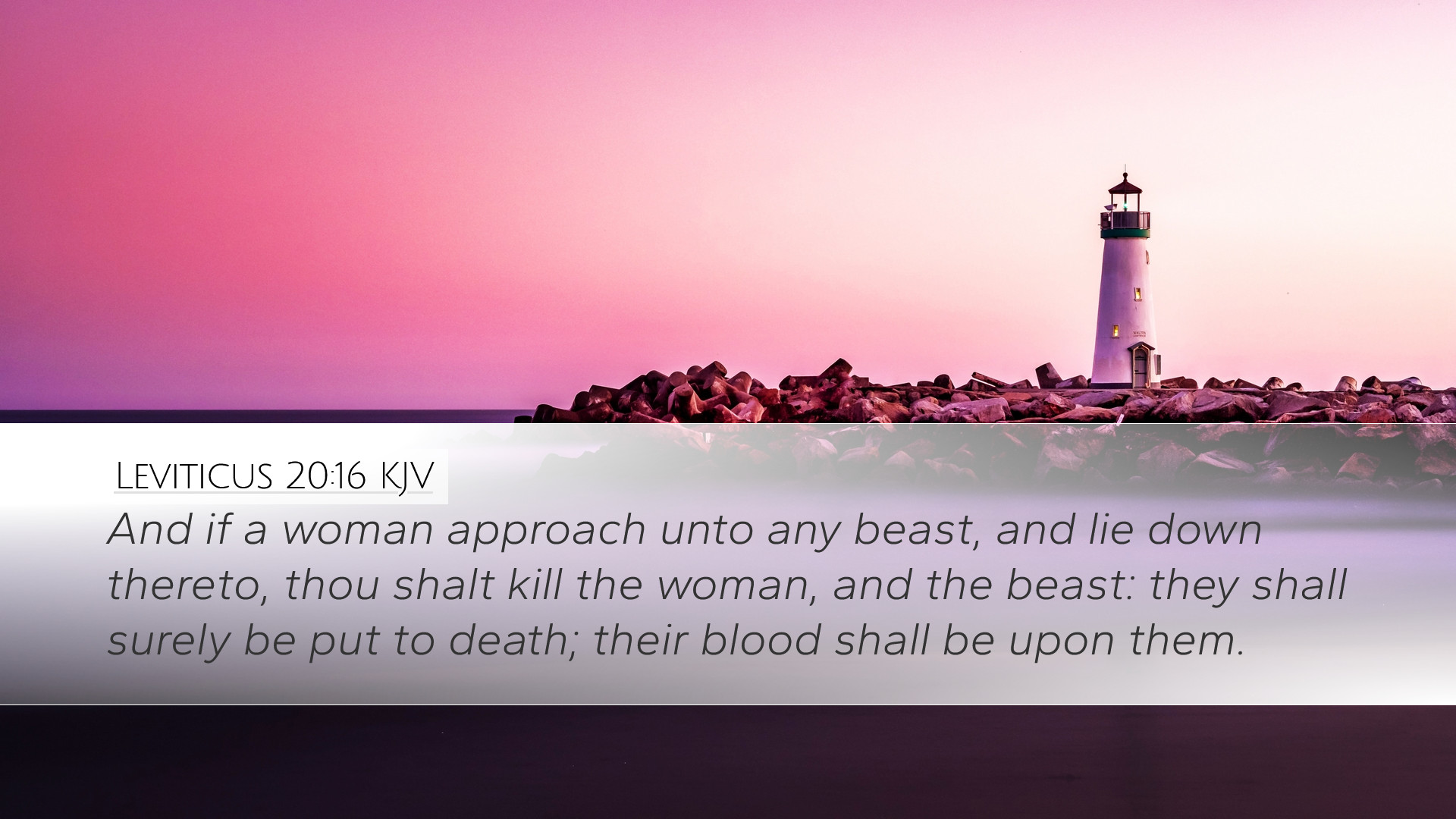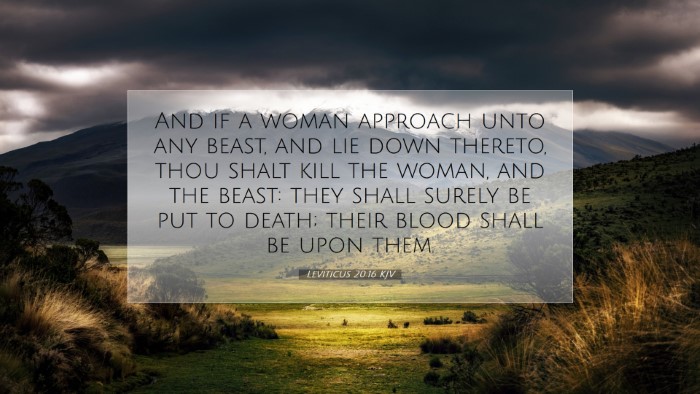Commentary on Leviticus 20:16
Verse Reference: Leviticus 20:16
"And if a woman approach unto any beast, and lie down thereto, thou shalt kill the woman, and the beast: they shall surely be put to death; their blood shall be upon them."
Contextual Background
The book of Leviticus is a pivotal part of the Pentateuch, emphasizing the holiness of God and the standards He sets for His people. In Leviticus 20, the Lord outlines severe penalties for various immoral practices, reinforcing His covenant expectations.
Theological Insights
- Sin and its Consequences: This passage highlights the seriousness of sin, specifically in regards to sexual immorality. The punishment prescribed indicates God's intolerance of practices that defile His creation.
- Holiness of God: God's statutes showcase the importance of holiness among His people. The severe nature of the punishment serves as a deterrent against behaviours deemed unholy.
- Community Standards: These laws were not only individual mandates but were to shape the moral fabric of the Israelite community, emphasizing collective responsibility.
Commentary Insights
Matthew Henry's Commentary
Matthew Henry emphasizes the gravity of falling into immoral acts, reflecting on the detrimental effect such actions could have on both the individual and the community at large. He observes that this law serves as a warning and a call to uphold purity in the congregation of Israel.
Albert Barnes' Commentary
Albert Barnes provides a detailed analysis, noting that the law's severity is indicative of the cultural context in which it was delivered. He explains that in ancient times, associations between humans and beasts were not just moral violations but connected to idolatrous practices. Thus, this command not only addresses behavioral misconduct but also seeks to eradicate such rituals from the Israelite community.
Adam Clarke's Commentary
Adam Clarke elaborates on the implications of the verse, focusing on the intrinsic value of animal life in the context of the law. He highlights that the death penalty not only applies to the woman but also to the beast, underscoring the seriousness of defilement and the need for atonement. Clarke also notes the phrase "their blood shall be upon them," indicating personal responsibility for sin.
Moral and Ethical Considerations
This passage encourages modern readers to reflect on their ethical and moral behaviors within their communities. It prompts discussions regarding the importance of maintaining integrity in personal conduct and the necessity of communal adherence to moral standards. The implications of such laws serve as a reminder that every action carries consequences, both for the individual and the community.
Reflections for Pastors and Theologians
For pastors, this commentary provides a foundational basis for discussing the relevance of Old Testament laws in a contemporary setting. It allows for an exploration of how these ancient regulations reflect God's unchanging nature and His call for holiness.
Theologians can utilize this verse to delve into discussions on atonement, justice, and the character of God as both merciful and just. This passage serves as a critical reminder of the cost of sin and the profound need for redemption, leading to vital theological conversations around grace and righteousness.
Conclusion
Leviticus 20:16, while appearing severe and ancient, provides timeless truths that resonate within the Christian faith. The commentary by esteemed scholars such as Matthew Henry, Albert Barnes, and Adam Clarke illustrates the importance of understanding these texts within their historical context while drawing meaningful applications for today's world.


